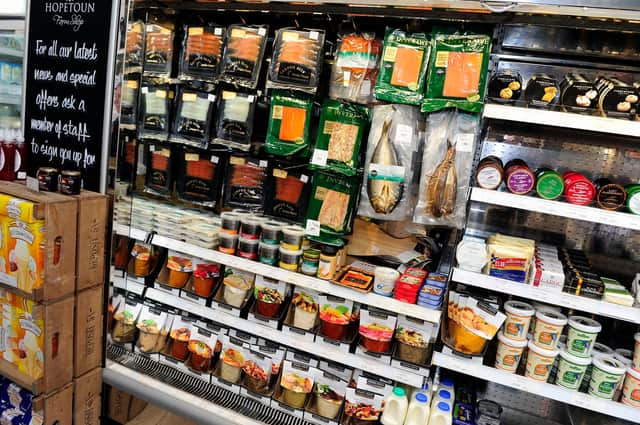Farming: Shoppers flock to farm retailers as sales hit £1.4bn


And with 89 per cent of farm retailers reporting an increase in sales since 2019, the sector has highlighted its value to local communities throughout the Covid pandemic.
The research was commissioned for the Farm Retail Association (FRA) annual conference which took place yesterday, and was produced jointly with workers from Harper Adams University.
Advertisement
Hide AdAdvertisement
Hide AdResearchers from the University’s Food, Land and Agri-Business Management department carried out the study, which aimed to understand the impact which farm shops have on local communities, farmers and suppliers as well as the wider economy.
The study found that of the country’s estimated 1,581 farm retailers, 64 per cent expected sales to increase further in 2022 – and revealed that a third of all farm shops had opened in the last ten years.
The report indicated that customers were attracted to shopping with farm retailers because of their quality of products, customer service and the farm setting.
The biggest challenge currently facing farm retailers was, in common with many other sectors of the economy, the ability to attract sufficient talented and skilled staff.
Harper Adam’s Alastair Boot, said: “The research establishes the growth of the sector and its enormous value to local economies. It is clear that farm shops offer a different experience to high street shopping through the quality of their produce and their standard of service – and that this difference is increasingly appreciated by customers."
FRA Chairman Rupert Evans said the results showed the vital part which farm retailers played in the community as well as on a national scale. “Collectively we are generating more than £1.4 billion in sales which is absolutely staggering and a testament to the passion and integrity of farm retailers.
“We knew anecdotally that consumers are preferring to shop and support local more than ever before and this data confirms just that. The trust was built up through the pandemic as farm retailers could adapt quickly to introduce Covid safe measures and people felt safer shopping in smaller environments as opposed to large supermarkets. We think the pandemic will have changed shopping habits for many and will be here to stay.”
• Farm assurance schemes are another tool widely used to validate the consumer’s belief in the quality of food produced within Britain’s shores. And Quality Meat Scotland, the longest established scheme of its kind has announced that it has updated its Cattle and Sheep Assurance scheme standards.
Advertisement
Hide AdAdvertisement
Hide AdThe new regulations will come into play from the beginning of April, and include an environmental section aimed at validating the sector’s sustainability criteria – and an Annual Health and Welfare review.
QMS’s Kathryn Kerr said that quality assurance had never been more important – and that the new standards would help to underpin reassurances made to consumers on provenance, high standards of production and of animal welfare and wellbeing,
Comments
Want to join the conversation? Please or to comment on this article.